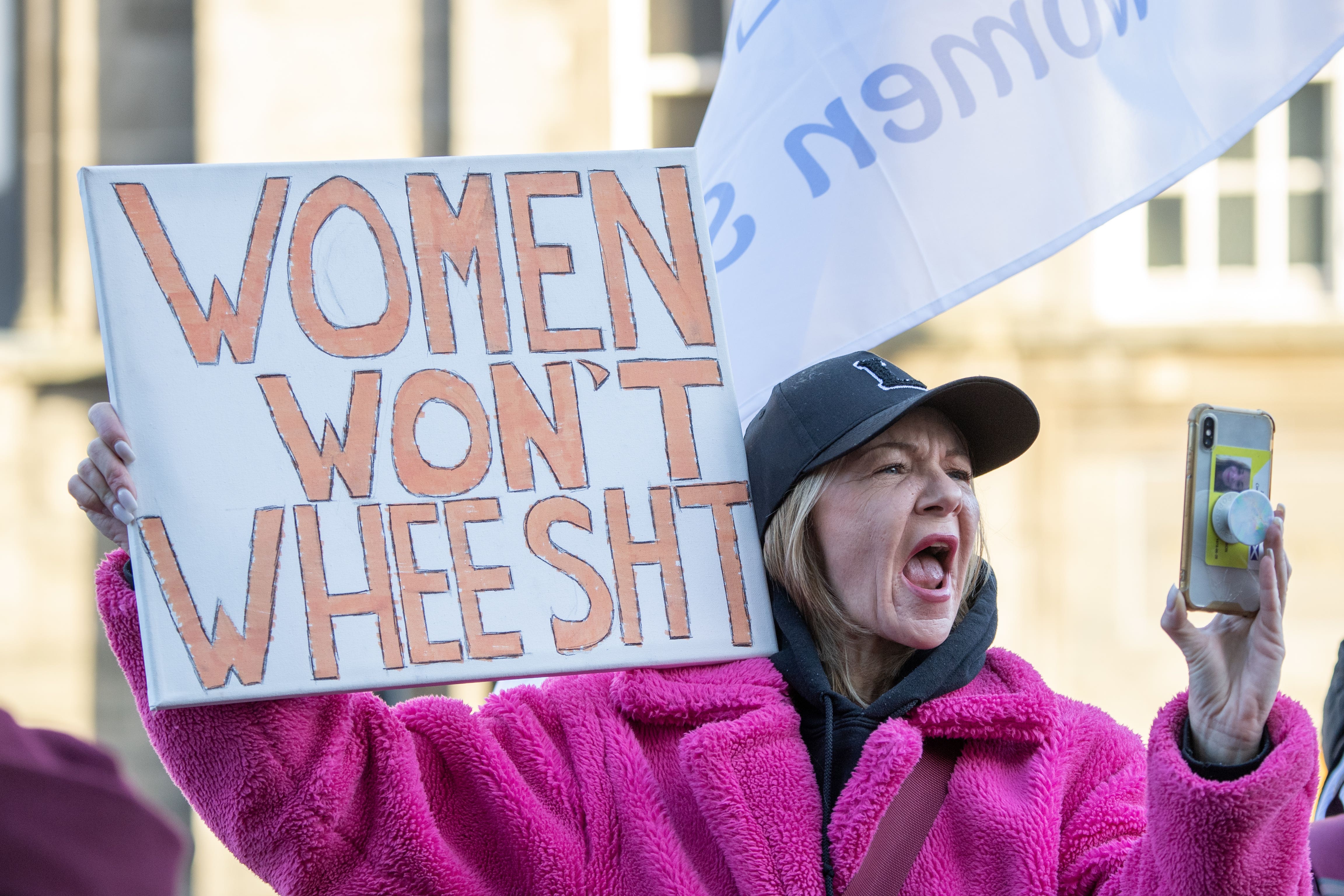Gender reforms expected to pass at Holyrood
The Bill will go to a final vote on Thursday afternoon.

Your support helps us to tell the story
From reproductive rights to climate change to Big Tech, The Independent is on the ground when the story is developing. Whether it's investigating the financials of Elon Musk's pro-Trump PAC or producing our latest documentary, 'The A Word', which shines a light on the American women fighting for reproductive rights, we know how important it is to parse out the facts from the messaging.
At such a critical moment in US history, we need reporters on the ground. Your donation allows us to keep sending journalists to speak to both sides of the story.
The Independent is trusted by Americans across the entire political spectrum. And unlike many other quality news outlets, we choose not to lock Americans out of our reporting and analysis with paywalls. We believe quality journalism should be available to everyone, paid for by those who can afford it.
Your support makes all the difference.Controversial gender reforms are expected to pass at Holyrood following a delay.
MSPs have been locked in debate this week, considering more than 153 amendments to the Gender Recognition Reform (Scotland) Bill which is designed to make it easier for trans people to gain a gender recognition certificate (GRC).
The Bill was initially set to go to a final vote on Wednesday, but it was pushed to Thursday afternoon due to the debate over amendments, while Tuesday and Wednesday’s debates went on longer than any other in the history of the Scottish Parliament, with MSPs sitting until around 1.30am on Thursday morning.
Despite being one of the most controversial Bills since devolution, the legislation is expected to pass when it comes to a final vote as a result of support within the SNP, Labour, Greens and Liberal Democrats.
But the Bill does create a disciplinary issue for the SNP.
At stage one of the Bill, seven MSPs from the ruling party voted against it – including minister Ash Regan, who was forced to quit – with two other abstaining.
Ms Regan said during the consideration of amendments that she would not be supporting the Bill, while fellow SNP MSP Kenneth Gibson hinted he would again rebel against it. Fergus Ewing and Michelle Thomson, meanwhile, spoke in favour of amendments the Scottish Government opposed.
Throughout proceedings, the Scottish Conservatives have made apparent attempts to make consideration take as long as possible with the raising of repeated points of order and pushing every amendment to a vote, even if the proposer chose not to do so.
Party leader Douglas Ross was even told he was close to “contempt of Parliament” by the Deputy Presiding Officer after repeatedly pushing for a fuller explanation as to why a late amendment tabled by one of his MSPs would not be taken in the chamber.
The final week of the legislation came against the backdrop of public shows of both support and opposition outside the Scottish Parliament, with a number of rallies held and cries of “shame on all of you” from the public gallery on Tuesday when an amendment that would prevent sex offenders from applying for a GRC was voted down.
The Bill will remove the need for a medical diagnosis of gender dysphoria currently required to receive a GRC.
It would also lower the minimum age for applicants to 16 and drop the time required for an applicant to live in their acquired gender from two years to three months – six for people aged 16 and 17 – though with a three-month reflection period.
On Tuesday, MSPs backed a change tabled by SNP MSP Gillian Martin to the law which means anyone subject to a sexual harm prevention order or sexual offences prevention order will not be allowed to seek a GRC.
Meanwhile, a push by another SNP MSP to ensure applications are paused if an applicant is charged with a sexual offence until their case is disposed of divided members by 61 votes to 61 – as is customary Deputy Presiding Officer Liam McArthur used his casting vote against the change.
Speaking in favour of her own amendments to the Bill, Ms Regan said the legislation would put the safety of women and girls at risk.
“I would say to my fellow parliamentarians – it boils down to this – do you think women will be more or less safe as a result of this law?” she said.
“If you have any doubt, any doubt at all that it will make women and girls less safe, then you cannot vote for it.”
After her comments, Presiding Officer Alison Johnstone was forced to suspend proceedings for around a minute due to shouting of support from the public gallery.
Late in proceedings, an amendment by Ms Regan which stated the Bill had no impact on Article 10 of the European Convention on Human Rights – enshrining an individuals right to free expression – passed without the support of the Scottish Government by 64 votes to 63.
Speaking ahead of Wednesday’s consideration of amendments, Social Justice Secretary Shona Robison urged fellow MSPs to back the legislation.
“Trans rights are not in competition with women’s rights, and as we have seen in the past, rights can be improved for everyone when those discriminated against and who face prejudice work together as allies.
“These reforms are supported by a majority in Parliament and members of all parties. I urge all members to vote in favour of these important reforms on what will be an historic day for equality in Scotland.”